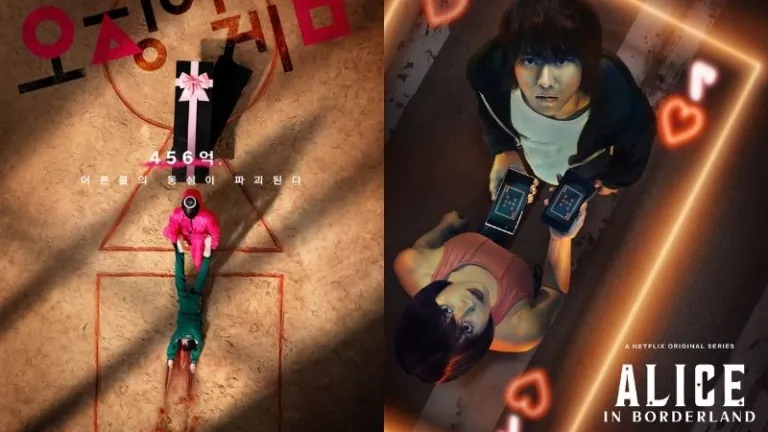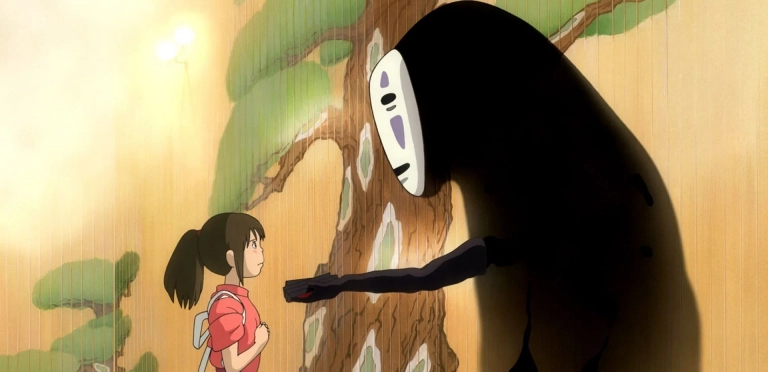In this piece, I’ll pit Squid Game against Alice in Borderland to see which survival game series—Korea’s or Japan’s—comes out on top.
Over the past few days, Squid Game has taken social media by storm. It’s sitting pretty at #1 on Netflix’s Vietnam domain. Some folks are singing its praises to the heavens, calling it a masterpiece layered with meaning, while others slam it, stacking it up against Japanese survival flicks and claiming it doesn’t hold a candle to them. Movies like Battle Royale, As the Gods Will, Gantz, and even non-Japanese titles like Circle, Deadly Class, and Escape Room get tossed into the ring. But the one that stands out most in these debates is Alice in Borderland.

Alice in Borderland, a Japanese survival game series adapted from a manga and produced by Netflix, whipped up a global frenzy back in 2020. A year later, Squid Game—also a Netflix production, but from South Korea—has sparked a similar whirlwind, naturally inviting comparisons between the two.
As a die-hard Alice in Borderland fan, I wasn’t planning to watch Squid Game. Even when it popped up on Netflix before the hype hit, and social media was still quiet, I brushed it off. I’m not one to chase trends, so when Squid Game blew up, I dug my heels in even more. Survival game shows aren’t really my thing either—I haven’t seen (or don’t recall) Battle Royale or As the Gods Will, which I find more entertaining than cinematic. It wasn’t until Alice in Borderland that I got hooked on the genre. Plus, I’m not big on Korean dramas, though I love their films like Parasite, Oldboy, The Handmaiden, Mother, Burning, and Memories of Murder. So, I’ll dive into this review as fairly as I can, steering clear of any Japan-vs-Korea bias (unlike some who fall into that trap).
Note: Spoilers ahead!
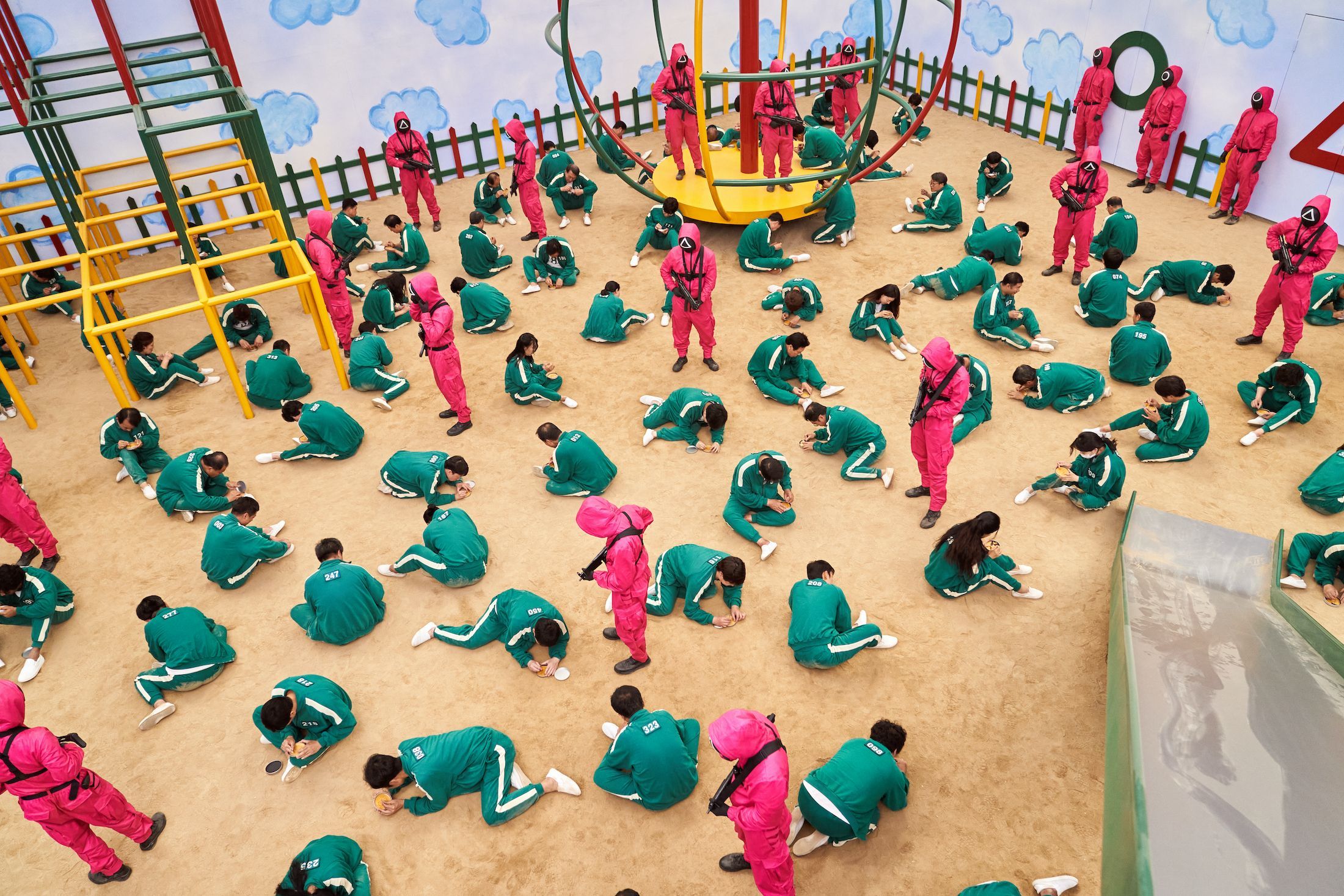
First, a quick rundown of Squid Game. As most know by now, it follows Gi-hun, a deadbeat drowning in debt, who stumbles into an invitation to a mysterious game promising a massive cash prize. He jumps in and meets a ragtag group of players—each with their own backstory and personality, united by desperation and debt. They’re whisked off to an island where they face life-or-death games rooted in Korean childhood classics, whittling down the group until one survivor claims the jackpot.
For me, Squid Game didn’t blow me away or catch me off guard, but it’s got personality and a polished finish. Japanese survival flicks often skimp on art direction, sets, and effects—usually sticking to schoolyard vibes—except for Alice in Borderland. Squid Game feels like Korea’s first big survival game hit, and the crew poured serious effort into making it slick, with stunning cinematography and top-notch aesthetics.
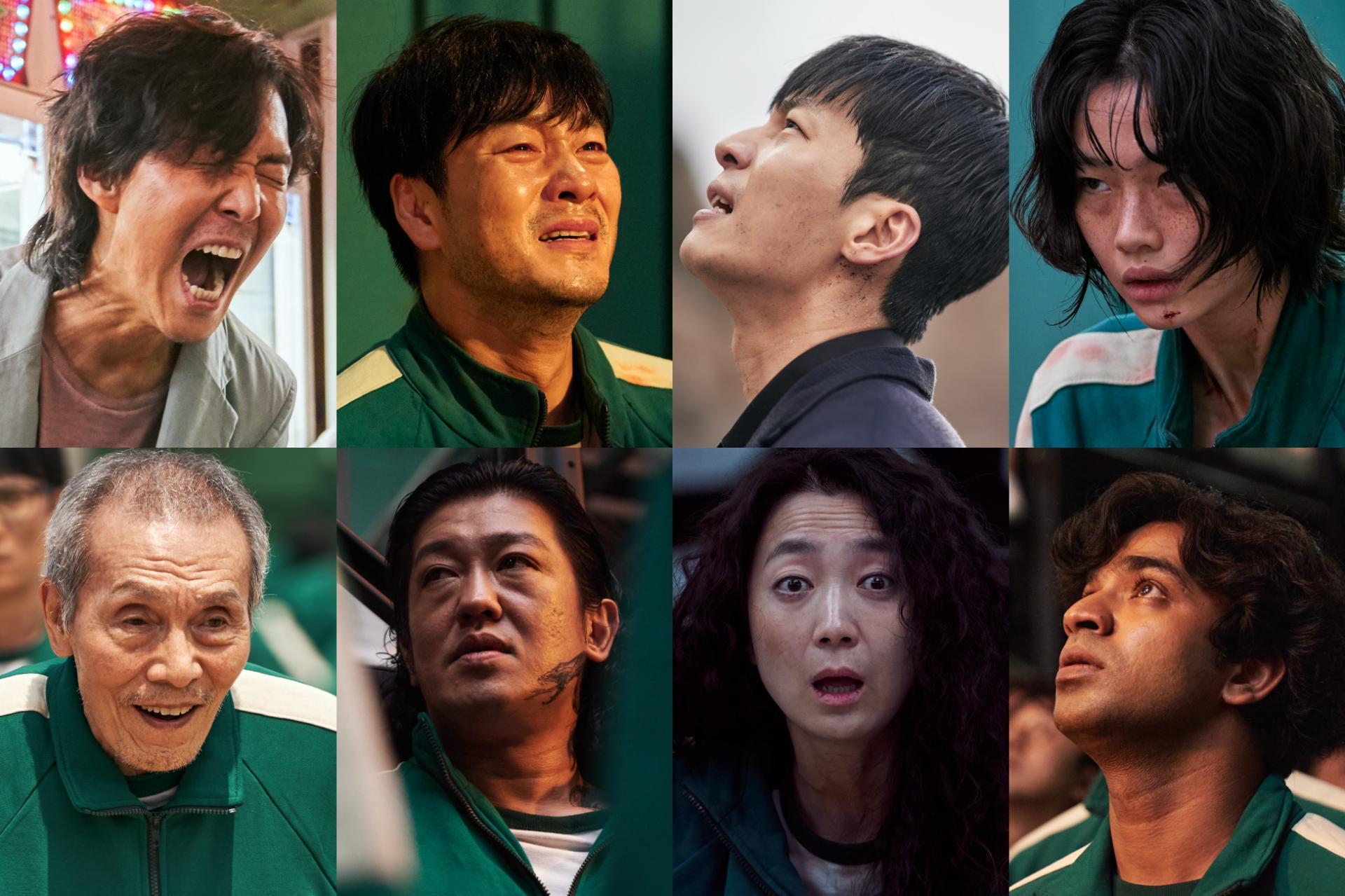
Story-wise, though, it’s not groundbreaking. The way players are lured in, the flow of the games, the bonds they form, and how the games eliminate them—it all feels familiar, echoing other survival films or manga. Before watching, I heard buzz about a big plot twist at the end, but I wouldn’t call it that. I pegged both “mystery” characters (the so-called twists) by episode 3—suspected them from episode 1, even. The games don’t lean hard into brain-teasers or mind-bending puzzles either, so they didn’t leave me awestruck. That said, their East Asian folk roots—like games Vietnamese viewers might recognize—give them a cozy, nostalgic edge.
One standout compared to other survival flicks, including Alice in Borderland, is how Squid Game digs into its characters’ personal lives and psyches. Sure, compared to non-survival dramas, the depth’s a bit clichéd, but for this genre, it’s a fresh twist. You’ve got characters people love—like Il-nam, Sae-byuk, Ji-yeong, and Ali—or love to hate, like Deok-su and Sang-woo. It breathes soul into the show, though it sometimes feels one-dimensional with its clear-cut good-vs-evil split. Yes, some characters flip from bad to good (or vice versa), but you can usually spot who’s who from the get-go, and that vibe sticks through the whole series.
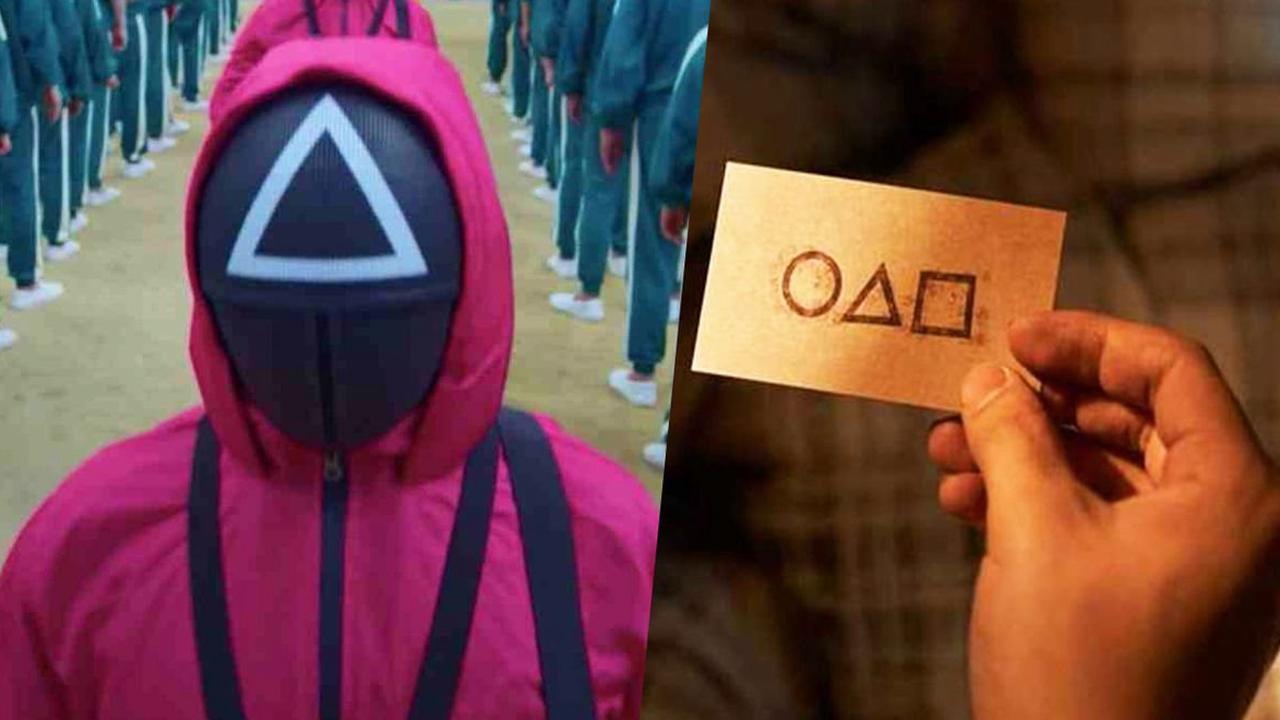
Compared to Alice in Borderland, the characters in that show are tougher to pin down—especially at the Beach. Sure, it’s got its share of flat characters, but with a bigger supporting cast, you get more wild cards. That said, Alice doesn’t flesh out its leads’ pasts or minds as well as Squid Game. It makes sense: Alice’s hero is a nerdy, game-obsessed teen with a knack for puzzles, while Squid’s is a washed-up middle-aged loser backed into society’s corner. That gives Gi-hun room to grow—and his arc peaks post-game, not in some predictable way, but with a raw PTSD twist that adds social and emotional heft Alice hasn’t touched.
Speaking of depth, Squid Game isn’t just about greed or backstabbing—it takes a swing at capitalism and consumerism, forces that drive its players to the edge until they’re betting their lives. The game offers equality, but it strips away humanity, exposing raw survival instincts for cash and survival. Alice in Borderland skips the capitalism critique but jabs at communism via the Beach crew—preaching “work together, win together” while power stays with the elite. Politically, both shows bring something tasty to the table.
I won’t dive into religion—I’m not devout or well-versed in Christianity. Squid Game toys with rejecting God, suggesting an all-powerful but not-all-good deity. It’s a cool angle, but not revolutionary—American shows like Westworld, Preacher, Lucifer, and American Gods have beaten that horse to death. The circle-square-triangle symbols? Some reviews tie them to religion, but they’re basic shapes—you could link them to anything. Joking aside, maybe the circle’s a rice cake, the square’s a sticky rice dumpling, and the triangle’s a pork bun. Or religiously: the sun of Islam, Thor’s hammer, and the Illuminati—none of which fit Squid Game, of course.

One thing I didn’t vibe with in Squid Game is the “overacting” (or “over-the-top” style). It’s a Korean drama staple—actors cranking facial expressions, eyes, and gestures beyond realism. Episode 1’s players and Mi-nyeo’s actress (unbearably overdone) are prime culprits, alongside Il-nam, Deok-su, and Gi-hun for chunks of the show. Meanwhile, Sae-byuk, Sang-woo, and the moms nailed it. Gi-hun’s actor only ditched the overacting in the finale—and there, he crushed it. Overacting fits comedies (Chaplin, Wes Anderson), dark humor (Coen Brothers, Tarantino), or B-horror flicks pushing terror. In Squid Game, it feels forced to amp up the dread, undercutting authenticity. Alice in Borderland has grimmer deaths but doesn’t overplay the horror (except episode 3, with the lead’s friends dying). Korean cinema’s overacting feels baked into its training and directing mindset.
Squid Game lacks the clever, brain-twisting games of Alice in Borderland. Its tension doesn’t match Alice’s either, where games rank from 1-10 across card suits, making 7-10 nail-biters. My Alice faves are 7 of Hearts (episode 3) and 10 of Hearts (finale)—peak shock and suspense. Squid Game’s glass bridge is its tensest, but it’s luck-based. My top pick is episode 6’s marble game (Gganbu)—the best and most brutal, worthy of a 7 of Hearts in Alice.
Sadly, Squid Game dips after episode 6. The finale—especially the titular game—left me cold. Its saving grace is Gi-hun’s PTSD-fueled vendetta, a twist on the usual “winner moves on” or “hero topples system” endings.
Alice in Borderland’s still ongoing. Its 10 of Hearts resolution disappointed me a bit, but season 1 ends with J, Q, K cards teasing a wilder season 2.
Visually, both shine—cinematography, color grading, and effects feel legit, not like cheap manga adaptations. Set design rocks too: Squid Game’s pink-green aesthetic pops, while Alice’s empty Tokyo and Beach setup stun.
Overall, Squid Game’s good—not a masterpiece, not trash. It holds its own against Alice in Borderland. Here’s my breakdown:
- Tension: Squid Game 7 – Alice in Borderland 9
- Game Smarts: Squid Game 6 – Alice in Borderland 9
- Suspense: Squid Game 8 – Alice in Borderland 8
- Character Depth/Growth: Squid Game 8 – Alice in Borderland 6
- Meaning: Squid Game 7 – Alice in Borderland 7
- Climax/Resolution: Squid Game 6 – Alice in Borderland 6
- Acting: Squid Game 7 – Alice in Borderland 8
- Visuals (Cinematography, Color, Effects): Squid Game 8 – Alice in Borderland 8
- Sound/Music: Squid Game 8 – Alice in Borderland 7
In short, it’s a close call—both tackle politics well, build solid stories (though their climaxes fizzle a bit), and nail visuals with stellar cinematography, color, effects, and sets. Squid Game lags in tension and brainy games but wins on character depth. Both rank among the best survival shows, but against all TV and film? I’d give them a 7.9/10.

